A disaster is when you wake up tomorrow and everything you knew has changed…

Artaud, late 1920’s …a nightmare is when you wake up and you have to justify and explain your anger to your oppressors as they beat you.
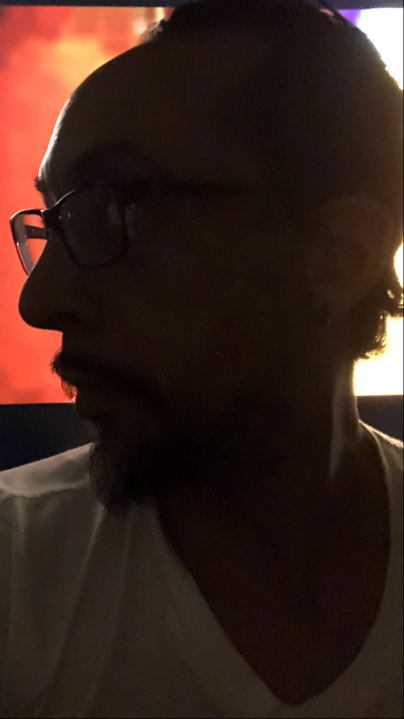
Kangalee, 2020
Unlike a plague a social cataclysm is far worse because the oil of the machinery keeps running. Fascism rests on nationalism and maniacal adherence to preservation of racial identity and hierarchy and a defense of that order, it is a swift, direct and organized violence. Massacres are surprising upswells of homicidal urges; genocides contain the celebration of racism and all its devilish rituals, they are capitalist perversions gone amok, they are conscientious slaughters that expect you to pay rent on the land you’re being executed on. When the bureaucracy is still in tact you don’t have Fascism (fascists don’t care for their enemies taxes) you have ‘Atrocity Exhibitionism’: murder in the first degree, things may feel chaotic where in actuality they are all well choreographed. Even what we come to view as science, and nature and luck — all collide under the ominous shadow of State Carnage. In the corners, swelling — are all the desires of artistic paroxysms which are waiting to explode, to actually combat and taunt the sword…with a pen. When a plague rears its head – it is a sign that something else is occurring. It is here that the Theater has an opportunity to shine but quite often it doesn’t. Not because it can’t but because the virus of racism usurps the potential for not only a catharsis, but the hope for a direct expression of the angst of the oppressed and all who find themselves crushed under the boot of the state. The only way to fight it is to enact a catastrophe upon the plague itself. And that is nearly impossible when a nation becomes a mass of spectators and collectors of awful visions as opposed to creators of them.
Poverty porn. Lynch porn. Snuff films. Bulleted brains. Crucified throats. An asthmatic at midnight. Skeletons at the door. Take your pick.
The New Millennium scourge now, although always uncertain, insistent and insidious, is more sophisticated than the bubonic plague and more nefarious than the Capitalism of the 20th century cause it is one we enable with our knees…
(We have sowed the seeds
of Kitty
Genovese)
*
The responsibility is on us – it is on visionaries, artists, revolutionary Leftist activists, humanitarians, it is on good citizenry and that is something latent in many people because the answer’s not going to come from a place that the government mandates or a site that the internet hosts. It will not come from endowments from the sky or in the form of a Netflix series. It will come from us. Crisis, catastrophes, holocausts – are survived and illuminated by those untangling themselves from the web. WE have to figure this out on our own, we have to move forward.
*
With the pandemic on the mind – and the reminder of white violence against black bodies clutching the spin of the world at the moment- amidst an alarming death toll —
— and the macabre glee that the media seems to encourage – a sort of digitized schadenfreude – my mind has constantly been dreaming and returning to the past and some of the hallmarks of my own creative inspirations…When I was most free, at my most dangerous dynamic and draconian. When electricity still surged through my veins.
The work of Antonin Artaud deserves great appreciation in any time in this century, but particularly now because of the Corona Virus and the racism that has been unleashed as a result of it, intertwining themselves into a plague like no other – and because the theater itself is a dead organ which no one has the courage or the impetus to actually want to bury.
Artaud was a French surrealist (although he later broke with the surrealists) and was a maverick of the European arts scene in the 1930’s, he was noted as a superb actor (and acknowledged for his fierce classically handsome features: acute cheekbones and intense eyes) and appeared in Danish filmmaker Carl Dreyer’s The Passion of Joan of Arc as the Monk – easily one of the greatest works of 20th century art ever created.
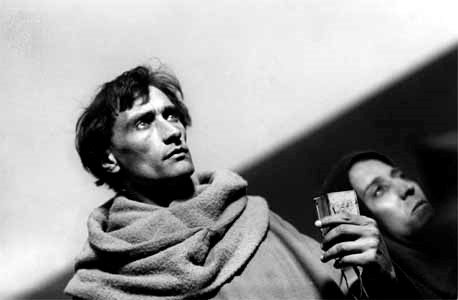
Artaud as the Monk in Dreyer’s overwhelming masterpiece “The Passion of Joan of Arc“
Artaud was an even better poet and writer; a brilliant thinker and the creator of the ‘Theater of Cruelty’, a theater he felt that would impel mankind to acknowledge his weaknesses and strengths and reinvigorate the human spirit to battle injustice, bourgeois malaise, Westernized imperialistic values, and re-connect not only the East and West – but the body and the spirit. his theater was a physically demanding and emotionally violent one, a theater that relied on literal blood sweat and tears; a theater that was based on saliva and the serious intention of changing the audience – meaning the world. He believed if the theater could act as a plague onto the audience – we would be healed. If you could feel the horror of oppression on stage, actually feel it in your bones as an audience member – you would be forced to change society. Confrontational, sweaty, and urgent; nearly impossible but blisteringly inspirational: Julian Beck & Judith Malina’s Living Theater (The Brig, Paradise Now), LeRoi Jones/Amiri Baraka’s Black Revolutionary Theater (The Toilet, Dutchman, Slaveship) and rock bands in the sixties like The Doors (“The End,” “When the Music’s Over”) — were heavily influenced by Artaud and are probably the most practical examples of his nearly impenetrable ideas. Even the heartbreaking eyes of Rene Falconetti who plays Joan of Arc in Dreyer’s The Passion of Joan of Arc was no doubt influenced by Artaud’s notion of bodily insurrection: her eyes give us a revolution within her face, compelling the entire screen to protect and save her from her murder.
For a mainstream example in 1970’s-80’s cinema, watch Pasolini’s Salo (or 120 Days of Sodom) or Sidney Lumet’s Dog Day Afternoon — the sheer force and commitment to revolt in Al Pacino and Judith Malina’s performances exude a sense of what Artaud hoped for his actors to convey. Although accused incessantly of “agit-prop” and being “too angry” for middle-class cinephiles my own 2001 guerrilla movie As an Act of Protest , an ‘anti-Sundance Independent film’ contains a palpable rage and incurs an Artaudian spirit in the last quarter of the film, where I meld Franz Fanon and Antonin Artaud into a theatrical mise-en-scene which spreads on the screen like a spark kindling before an imminent insurrection against racism….by metabolizing Artaud’s wishful theatrical rage…we find our way to Fanon’s cathartic ending. It is not mere revenge we are after, it is healing. The erasure of trauma.)

Break on Through: The Doors’ Jim Morrison was heavily influenced by Antonin Artaud.
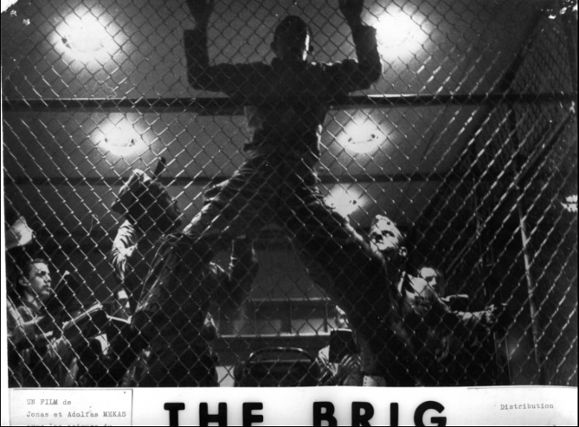
The Living Theater’s anti-Military 1964 play “The Brig” was a crystallization of Artaud’s Theater of Cruelty. The government forced them off stage and out of the country…
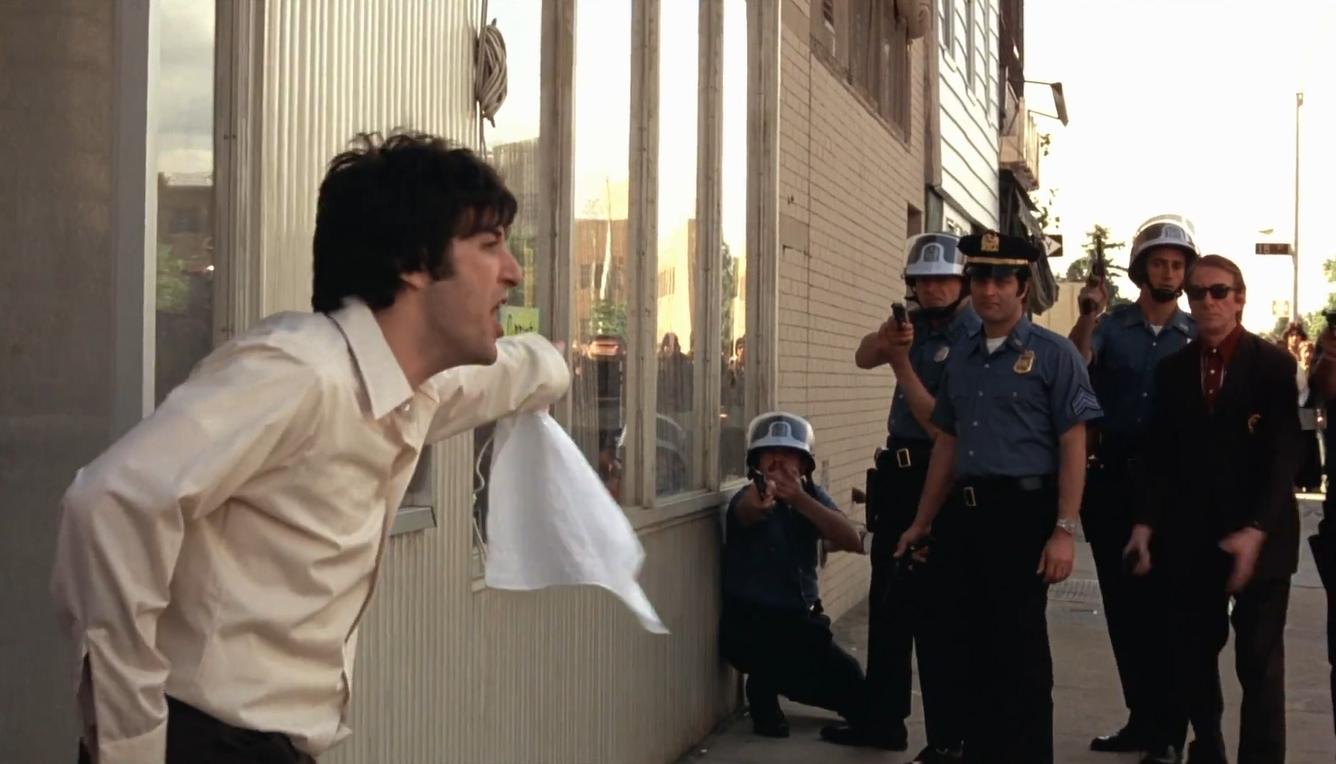
Hollywood Revolt: Artaud & Method Acting. Al Pacino in “Dog Day Afternoon”, fueling some of the greatest anti-police screen acting in the history of cinema…enough to incite a riot.
Antonin Artaud is one of the Forgotten men relegated to the desks and journals of aesthete frauds and smug pretentious theater historians who, like the mainstream media’s imprisonment of the word liberation and revolution- try to keep Artaud confined to an intellectual ghetto know that has somehow traversed everything from so called experimental theater to pop new wave music. Yet Artaud remains – for the most smug Baby Boomer theater historians – a chic prototype of the great mad poet who suffered in the asylum not to free the bodies and minds of the people – but to give credence and legitimacy to MFA and graduate students who choose to type about the past as opposed to writing/confronting our present and therefore create a future. Artaud’s desire to overturn repressive systems, rebel against the hatred and imperialistic order of European governments, and wish to author a completely new language for the theater based on cries, screams, and shouts of the highest order is often met with mockery, denigration, and flippant irony suggesting that revolution of the body politic, human soul, and spiritual outreach is not impractical but amateurish and the result of a deranged mind.
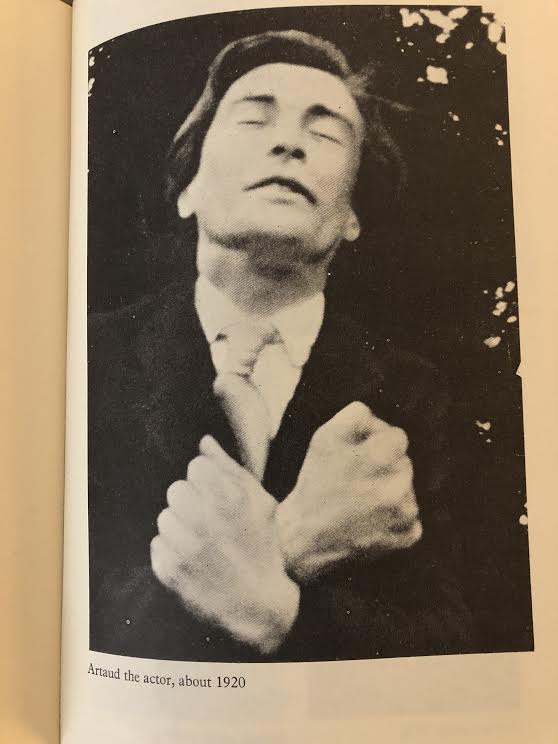
Artaud, the Actor about 1920 [from Jack Hirschman’s 1965 Artaud Anthology by City Lights Bookstore]
Antonin Artaud is a forgotten man because those who were most inspired by him died as he did, mainly, and those perhaps like me – those of us who swung and licked up the crumbs of the revolutionary cultural feasts that exploded in the 20th century—have suffered badly exploring in the dark, often breaking our own legs as we attempted to find the stairway up to the bedroom but instead tolerated the crevice between the final step and the landing, unsure of what we might find if we went
All
The
Way
Like the man looking for his keys under the streetlamp ON THE OPPOSITE side of the street…we question and wonder, we stall and procrastinate. Like Hamlet, we retreat into our well plumbed brains holding on to the gasp that might just release that emotional molotov cocktail we are ashamed to throw. Unlike Hamlet, we have to spend more time enacting the destruction of the oppressor, not debating it.
Artaud resonates because his hallucinations were not just real, but painfully genuine.
He was a drug addict who suffered before and after entering an asylum, a man who wrote perhaps the greatest essay on van Gogh and the real meaning behind suicide; the first Anglo European male surrealist to declare a new form of theater while simultaneously denouncing colonialism, brutality and racism, Western provincialism…and the deep deep holiness of the Original Peoples (read his Conquest of Mexico play which excoriates the Spanish conquistadores and devises a play in which in a psychedelic reversal of history: the Indians righteously defeat the Spanish racists and I guarantee you will scratch yourself trying to figure out what happened to revolutionary anti-colonialist people in the theater and why are there no Anglo-Western theater poets like this today?)
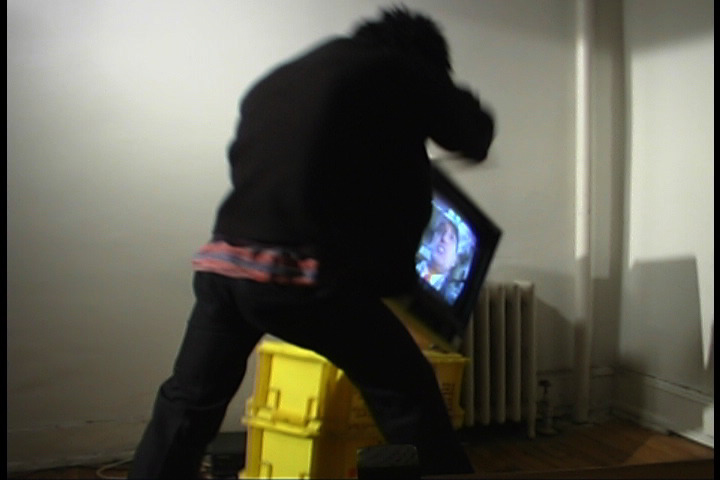
Rage Against The Machine: An Artaudian moment in “As an Act of Protest” where the main character destroys the TV which frames his oppressor – The Fascist Mayor – as a virtual omnipotent entity.
He was a genius because he saw all that he could not somehow achieve and actually expressed that; he was a seer who had the temerity to recognize – in brilliant hallucinations- both his own abilities and desires as well as his limits and failures. Like Rimbaud he knew his death lay in the impractical reaches of his own art. Unlike Rimbaud he did not commit suicide of the mind or spirit (as Rimbaud did at 19 by giving up poetry to become an arms dealer) but he waved his own white flag as I now do, as we all must learn how to do.
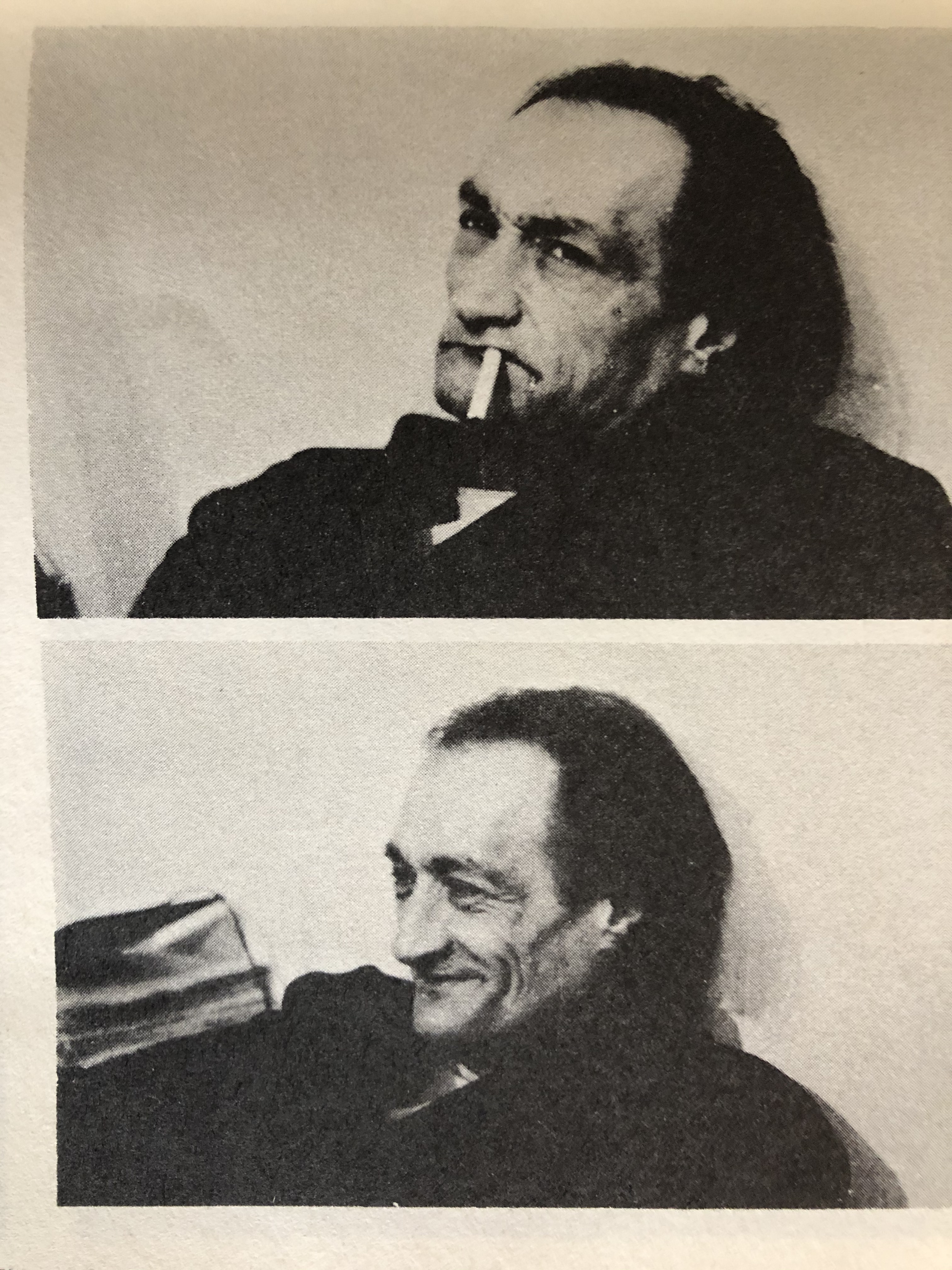
Artaud, after shock therapy treatments and his time spent in a Rodez mental institution. 1946
There is strength in concession. It is not surrender. It is admitting simply the truth. And sometimes the bad guys do win.
Or rather
The good ones.
Do.
Lose.
*
Read his words. If he doesn’t make you want to form a theater of revolt than I don’t know who will. Read his essays. If you don’t tremble inside it’s not cause you don’t understand his brilliant use of language or the intensity of his visions — it is, perhaps, because you are too far removed from your imagination or your soul. Sometimes both.

My 1997 production of “Dutchman” jolted the MTV generation with this Artaudian rendition of Baraka’s masterpiece with Damon Gupton and Morena Baccarin (courtesy of HERE Theater, NYC)
I hope to convert you immediately, but that is highly unlikely. Antonin Artaud is dense and mysterious, alchemical and concrete, surreal and quotidian, spiritual and political. To read Artaud is unlike any other experience, he is one of the few poet-philosophers of our time who actually embodied his ideas, whose imaginative thrust outdid the corpuscles of his own body.
His words live and breathe on the page even if they could not find their way on the stage. Proving to us all that: the art is not in the “final product.” It is in the germ.
*
Excerpts below from “The Theater and the Plague” by Antonin Artaud, from The Theater and Its Double, 1938. (Translation from French by MC Richards, Grove Press, 1958)
*
“Once a plague is established in a city, the regular forms collapse. There is no maintenance of roads and sewers, no army, no police, no municipal administration. Pyres are lit at random to burn the dead, with whatever means are available. Each family wants to have its own…”
“The dregs of the population, apparently immunized by their frenzied greed, enter the open houses and pillage riches they know will serve no purpose or profit. And at that moment the theater is born. The theater, i.e., an immediate gratuitousness provoking acts without use or profit. “
“But whereas the images of the plague, occurring in relation to a powerful state of physical disorganization, are like the last volleys of a spiritual force that is exhausting itself, the images of poetry in the theater are a spiritual force that begins its trajectory in the senses and does without reality altogether. Once launched upon the fury of his task, an actor requires infinitely more power to keep from committing a crime than a murderer needs courage to complete his act, and it is here, in its very gratuitousness, that the action and effect of a feeling in the theater appears infinitely more valid than that of a feeling fulfilled in life.
Compared with the murderer’s fury which exhausts itself, that of the tragic actor remains enclosed within a perfect circle. The murderer’s fury has accomplished an act, discharges itself, and loses contact with the force that inspired it but can no longer sustain it. That of the actor has taken a form that negates itself to just the degree it frees itself and dissolves into universality.”
“If the essential theater is like the plague, it is not because it is contagious, but because like the plague it is the revelation, the bringing forth, the exteriorization of a depth of latent cruelty by means of which all the perverse possibilities of the mind, whether of an individual or a people, are localized.
Like the plague the theater is the time of evil, the triumph of dark powers that are nourished by a power even more profound until extinction.
In the theater as in the plague there is a kind of strange sun, a light of abnormal intensity by which it seems that difficult and even the impossible suddenly become our normal element…”
“The theater, like the plague, is in the image of this carnage and this essential separation. It releases conflicts, disengages powers, liberates possibilities, and if these possibilities and these powers are dark , it is the fault not of the plague nor of the theater, but of life…”
And the intoxicating, nearly impenetrable, closing paragraphs which never cease to raise the hairs on the back of my neck:
“The theater like the plague is a crisis which is resolved by death or cure. And the plague is a superior disease because it is a total crisis after which nothing remains except death or an extreme purification. Similarly the theater is a disease because it is the supreme equilibrium which cannot be achieved without destruction. It invites the mind to share a delirium which exalts its energies; and we can see, to conclude, that from the human point of view, the action of theater, like that of plague, is beneficial, for, impelling man to see themselves as they are, it causes the mask to fall, reveals the lie, the slackness, baseness, and hypocrisy of our world; it shakes off the asphyxiating inertia of matter which invades even the clearest testimony of the sense; and in revealing to collectivities of men their dark power, their hidden force, it invites them to take, in the face of destiny, a superior and heroic attitude they would never have assumed without it.
And the question we must now ask is whether, in this slippery world which is committing suicide without noticing it, there can be found a nucleus of men capable of imposing this superior notion of the theater, men who will restore to all of us the natural and magic equivalent of the dogmas we no longer believe.”
— Antonin Artaud, 1938














 you stand alone with a catalog of memories and actions. And like the Actor, it is our actions ultimately that define who we are, how we choose to fight or retreat. We all feel like the Nowhere Man sometimes…but maybe it is not failure or malaise that consumes, but risks that genuinely tried. Not “nowhere plans” but actual attempts – stabs at the wall, great failures perhaps – but proof one has lived and had thoughts and some passion for SOMETHING. And, if anything, at least my words can do what I can’t: resist trembling in the face of Capitalism and the force of obedience. The “bastard literature” which may have given birth to my own madness is one that I claim with glee. Radical art, protest art, works and ideas that rejuvenates every sense of urgency from the eyebrow to the bowels. There is no more time for games. This ends it all. Walk into the valley, the great wash of the sun. turn your back on mediocrity. make art that can’t – but tries – to alter the world. And when they say you’re hateful, you’re diseased, you’re un-romantic – just let your sigh do the talking.
you stand alone with a catalog of memories and actions. And like the Actor, it is our actions ultimately that define who we are, how we choose to fight or retreat. We all feel like the Nowhere Man sometimes…but maybe it is not failure or malaise that consumes, but risks that genuinely tried. Not “nowhere plans” but actual attempts – stabs at the wall, great failures perhaps – but proof one has lived and had thoughts and some passion for SOMETHING. And, if anything, at least my words can do what I can’t: resist trembling in the face of Capitalism and the force of obedience. The “bastard literature” which may have given birth to my own madness is one that I claim with glee. Radical art, protest art, works and ideas that rejuvenates every sense of urgency from the eyebrow to the bowels. There is no more time for games. This ends it all. Walk into the valley, the great wash of the sun. turn your back on mediocrity. make art that can’t – but tries – to alter the world. And when they say you’re hateful, you’re diseased, you’re un-romantic – just let your sigh do the talking. 
